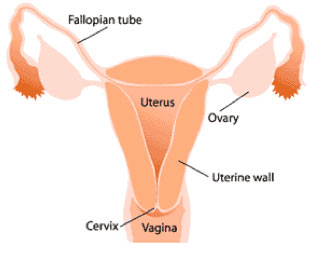Infertility
If it is taking longer to get pregnant than you thought, you are not alone. It is worth bearing in mind that it can take many ‘normal’ couples many months to conceive. Overall, about 1 in 6 couples have fertility problems.

What is normal?
Most fertile couples in their twenties having regular sexual intercourse (twice or more a week) will conceive within the first 6 months of trying and around 85% will be become pregnant after one year. So, when should you seek medical help?
The answer depends on your age (in particular, the woman’s age).
If you are under 35 years of age, it is recommended that you seek medical help if you do not become pregnant within 12 months of regular unprotected intercourse.
If you are over 35 years old, you should seek help after 6 months of trying as not only is it more likely to have medical reasons for the subfertility, but time is ticking.
What could be wrong?
Infertility can be due to a number of issues. For pregnancy to occur there is a need for sufficient numbers of active sperm to enter the cervical canal and swim into the womb and fallopian tubes. A normal egg is also required to be released from the ovary and make its way into the tube to meet the sperm at the right time. The sperm must then penetrate the egg and the resulting fertilised egg must then make its way back down into the womb to implant into the lining of the womb.
30-40% of infertility problems are caused by male (sperm) factors. About 40% are caused by female factors. Approximately 10% of cases have both male and female factors involved and in about 15% of cases, the cause is unknown or unexplained.

Causes of female infertility include:
Lack of Ovulation including Polycystic Ovarian Syndrome, leading to the egg not being released every month.
Hormonal disorders such as thyroid disease or high prolactin levels – these can affect ovulation.
Endometriosis – this is a condition where the lining of the womb (endometrium) can be found outside of the womb in the pelvis. It can affect the ovaries and tubes and it can cause difficulties with fertilisation and egg transport as well as affecting ovulation.
Fallopian tube blockage – this can be caused by inflammation of the tube from past infection such as Chlamydia.
Premature ovarian failure and menopause – this is a condition where the ovaries stop working.
Causes of male infertility include:
 Abnormal sperm – this includes a low sperm count, abnormal shape and abnormal movement of sperm. All these factors will impair the sperm’s ability to reach or penetrate the egg.
Abnormal sperm – this includes a low sperm count, abnormal shape and abnormal movement of sperm. All these factors will impair the sperm’s ability to reach or penetrate the egg.
- Genetic and chromosomal disorders
- Hormonal disorders such as testosterone deficiency
- Undescended testes
- Vas deferens blockage – a blockage in the tube that runs from the testes to the urethra can affect the transport of sperm.
- Other factors – smoking, high alcohol intake and overheating of the testicles can all affect fertility.
What are the risk factors for infertility?
These include:
- Age
- Smoking – this can reduce fertility in both men and women. Smoking can also reduce the success rate of fertility treatment.
- Being overweight
- Being underweight
- Past history of pelvic infection such as Chlamydia

What can you do?
If you are concerned, see your doctor who may refer you to a gynaecologist. Your doctor will take a medical history, perform a physical examination and may order tests which include tests for ovulation, tubal patency and sperm count.
If you do need help to conceive, treatments can include:
- Giving the woman medications to help her ovulate.
- Having surgery to ‘unblock’ the tubes
- Inserting sperm from a man or donor directly into the woman’s uterus (intrauterine insemination)
- IVF – this is a procedure where a woman’s eggs are removed from her ovaries and combined with sperm in the laboratory and then returned to her body.

Our goal at Birthright is to provide you the best gynaecological care in a friendly and relaxed atmosphere, where you can talk to us about your needs.
Call us and discuss your care.
0800 247 848
